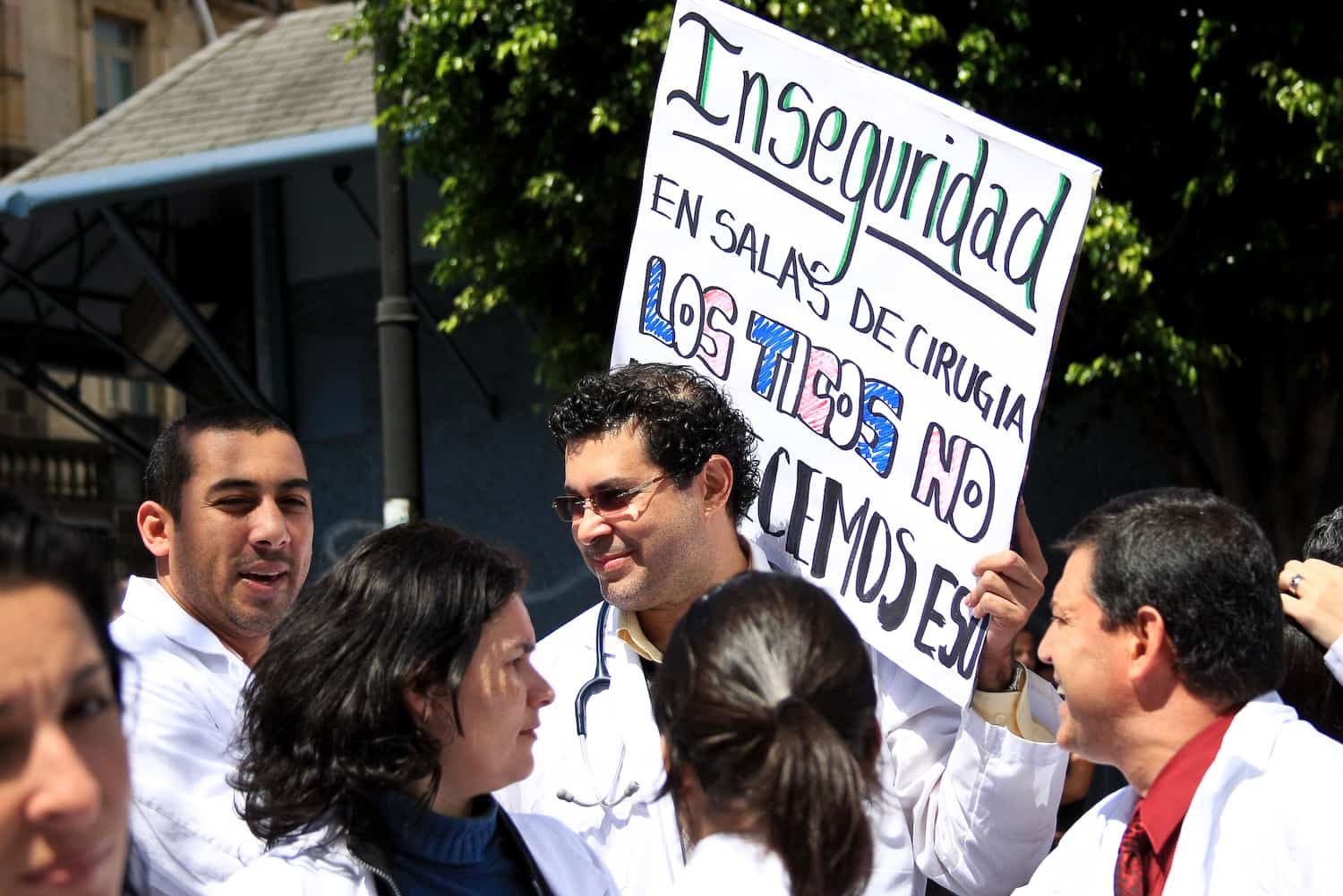Just days after battling to pass the 2015 national budget, President Luis Guillermo Solís now faces another challenge over whether to archive or reactivate a bill that would extend the right to strike to public-sector workers from hospitals, police and other services.
Former President Laura Chinchilla in 2012 vetoed the “Reforms of Labor Procedures Bill,” which for Solís now represents a challenge that could affect alliances with key opposition parties. Those alliances helped his party win the presidency of the Legislative Assembly in May after intense negotiations, in which Solís and his Citizen Action party (PAC) promised Broad Front Party (FA) legislators he would reverse Chinchilla’s veto.
Broad Front Party legislators have been pushing for the reversal of the veto in order to legalize strikes in essential services including public security, health care and ports. Strikes by workers in those services currently is prohibited, and the government can sanction or fire employees who take part in them.
The proposed reforms also would allow a strike with the support of only 16 percent of the total number of workers in public agencies that do not have a workers’ union. The current requirement is 50 percent. They would prohibit employers from issuing sanctions against those striking workers.
PAC, FA and Social Christian Unity Party legislators submitted the bill for discussion at the full Assembly in September, pending the lifting of the veto by Solís. Lawmakers from the National Liberation Party (PLN), the Libertarian Movement Party and evangelical parties oppose the reforms.
The deadline to discuss the bill is Dec. 13, but President Solís has not yet stated if he will lift the veto.
On Monday evening, the PLN’s top lawmaker, Juan Luis Jiménez, said that all of his party’s 18 votes would go against the bill if it goes for discussion before the full Assembly.
Interest groups have voiced opposition to the reforms, which they say would be bad for the economy. The Costa Rican Chamber of Commerce (CCCR) warned in a public statement that approval of the bill would increase legal uncertainty and harm foreign investment and employment.
The recent dockworkers’ strike in the Caribbean province of Limón “is an example of the abuse of this right in the public sector,” they stated.
“The business climate would not be positive,” CCCR Vice President Víctor Ruiz said. “Efforts to attract foreign direct investment will become more difficult.”
The National Chamber of Retailers – which includes some 5,700 small and medium-sized businesses – wants an amendment for the hiring of temporary and foreign workers to replace those on strike.
“We respect the workers’ constitutional right to strike. But our sector believes that the exercise of these rights should be within the bounds of reason and proportionality without affecting citizens’ rights,” the chamber stated.
The Costa Rican Chamber of Importers, Distributors and Representatives believes the bill would undermine confidence and affect jobs “at a time when unemployment remains at historical highs.”
If Solís lifts the veto, the bill would need the approval of at least 38 lawmakers in two separate rounds of voting.






